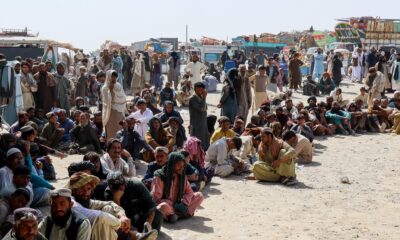Latest News
Gen McKenzie to recommend post-withdrawal plan for Afghanistan
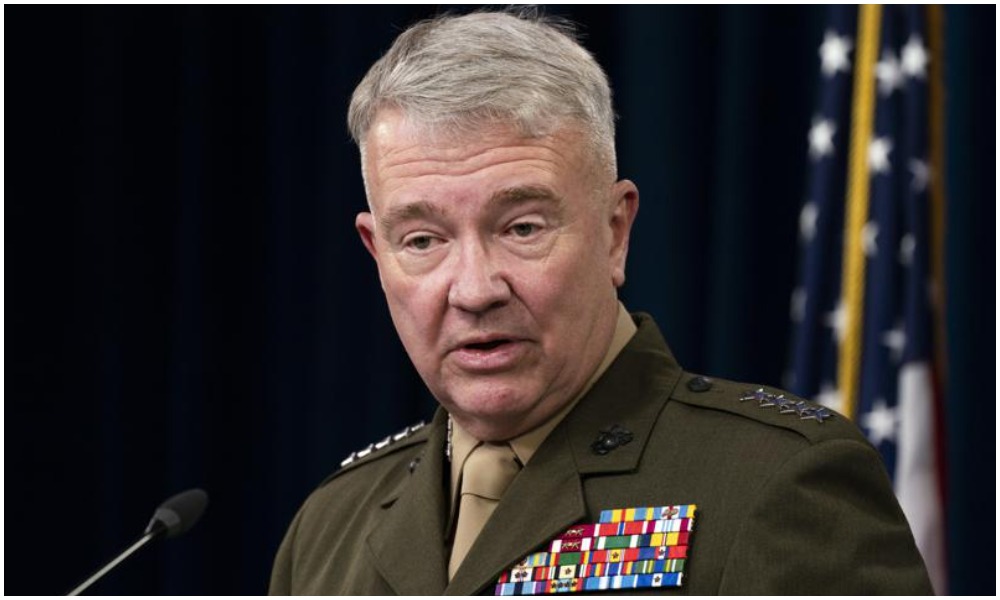
General Frank McKenzie, the Middle East commander of US Central Command (CENTCOM) said Wednesday he will make recommendations to Defense Secretary Lloyd Austin in early June on how to monitor and fight terrorist groups in Afghanistan from beyond its borders after all American forces withdraw.
McKenzie said negotiations with Afghanistan’s neighbors for overflight rights and troop basing are “moving forward” but will take time.
As a result, he said, the way the United States keeps an eye on the terrorist threat and aids the Afghan military will evolve as agreements are reached or security conditions on the ground change, The Associated Press reported.
He cautioned that this will be a “taxing time” for the Afghan military and “the risk is high.”
Speaking to reporters from The Associated Press and ABC News traveling with him to the Middle East, McKenzie declined to provide details about the recommendations he will make to Austin.
He said he will also provide cost estimates for keeping surveillance aircraft over Afghanistan regularly enough to keep track of terrorist groups after the U.S. pullout is completed.
McKenzie has made it clear that without any bases in neighboring countries, it will require far more aircraft to keep watch over Afghanistan because they will have to fly for four hours to six hours from other U.S. military installations in the Middle East.
The flight distance severely limits the amount of time the aircraft can spend in the air over Afghanistan, AP reported.
Military leaders are grappling with how best to carry out President Joe Biden’s order to withdraw all American troops from Afghanistan by September while still providing support to the Afghan forces and monitoring the threat that prompted the U.S. invasion of the country after the attacks of September 11, 2001.
Commanders have said they will monitor threats from “over the horizon,” to ensure that terrorists cannot again use Afghanistan as a base to launch attacks against the U.S. But they have acknowledged that the U.S. does not yet have any agreements for basing or overflights from any of the neighboring countries.
McKenzie said he is confident the U.S. will get the access it needs. But as yet, there are no firm solutions or decisions.
At the same time, Pentagon leaders and Congress members have expressed concerns that once the U.S. leaves, the Afghan government and its military will be quickly overrun by the Taliban.
The Afghan military, particularly its air force, has been heavily dependent on the U.S. for maintenance and training, as well as for combat air support when its troops are under attack. McKenzie said he believes the Afghans have a “fighting chance” to be successful and defend themselves.
“It’s time for the Afghan military to stand up and show that they can fight alone,” said McKenzie.
“I think it’s going to be a very taxing time for them. I think certainly there is a path for them to preserve what they have now. The risk is high. I don’t want to minimize that.”
He said that while the Taliban have not been attacking the U.S. or coalition troops, the violence against the Afghan people and the country’s military forces has been very high.
U.S. lawmakers have said they believe there is no chance the Taliban will abide by the commitments their leaders made in a February 2020 agreement with the Trump administration, which included engaging in sustained peace negotiations and severing all forms of cooperation with and support for al-Qaeda. Members of Congress also worry that al-Qaeda and the Islamic State group (Daesh) will take advantage of the chaos and regroup, with a goal of attacking the U.S. again.
McKenzie said that both al-Qaeda and IS have been degraded, AP reported.
“Our concern would be that ungoverned spaces open in Afghanistan and they are able to reassert themselves,” he said. “This would not be immediate. I don’t think anybody (thinks) this is something that will happen next month or even in the next six months. But eventually they will gather their strength again and they’ll be a threat to our homeland.”
Washington’s special envoy to Afghanistan, Zalmay Khalilzad, told a House hearing Tuesday that it is unduly pessimistic to predict that the Kabul government or Afghan military will be quickly overrun by the Taliban once U.S. and coalition forces withdraw.
He said the Taliban have reason not to push for a military victory and instead pursue a negotiated political settlement that could give them international legitimacy and removal from certain American and United Nations sanctions. He recently met with Taliban representatives in Doha, Qatar, as part of a round of consultations with interested parties.
Latest News
Magnitude 5.8 earthquake shakes northeastern Afghanistan

The United States Geological Survey (USGS) has reported that a magnitude 5.8 earthquake occurred tonight in northeastern Afghanistan.
The earthquake struck at 5:39 PM local time in Afghanistan, with a reported depth of 90.7 kilometers.
So far, there have been no reports of casualties or damage resulting from the incident.
Latest News
Afghanistan facing hunger crisis, says WFP chief Aylieff

John Aylieff, World Food Programme (WFP) Country Director in Afghanistan, says the hunger crisis has gripped the country in a catastrophic manner, and that the organization does not have the capacity to assist all those in need due to budget shortfalls.
This United Nations official, in an interview with the Associated Press, referring to the reduction in humanitarian aid to the people of Afghanistan, said that malnutrition in the country—especially among women and children—has reached its highest level. He stressed that the current figures represent the highest recorded level of malnutrition in Afghanistan, now putting the lives of four million children at risk.
He added: “The cuts in aid have been devastating. Of the four million hungry and malnourished children, we are now forced to turn away three out of every four because we do not have enough funding. We are still facing a catastrophic food crisis, as two-thirds of the country’s population are experiencing very severe acute malnutrition or are at crisis levels.”
Meanwhile, some experts in the country consider the causes of Afghanistan’s widespread hunger crisis to be multiple, adding that the reduction in aid is one of the main factors behind the worsening crisis.
It is worth noting that, in addition to the decline in international assistance to the people of Afghanistan, climate change—including consecutive droughts—lack of employment opportunities, and the large-scale return of migrants are considered major factors contributing to the humanitarian crisis in the country.
Latest News
Indian customs seize Chinese walnuts falsely declared as Afghan

Indian authorities at Mumbai’s Nhava Sheva Port have detained 46 containers after finding that walnuts imported from China were falsely declared as Afghan produce, The Hindu Business Line reported.
The ship, which reportedly departed Bandar Abbas Port, has been held for more than two weeks. A circular from the Customs Intelligence Unit says one person has been arrested, with tax-evasion losses estimated at 50 crore rupees (approx. $5.4 million). No importer has yet claimed the shipments.
Indian trade sources say misdeclaring walnuts from United States and Chile as Afghan goods is a long-running practice to exploit SAFTA’s zero-duty benefit, as India imposes 100% duty on walnut imports to protect growers in Jammu and Kashmir.
Officials say traders forged transit documents in India’s E-Sanchit/ICES system to fabricate an Afghan route, while the packaging still carried Chinese markings.
-

 Latest News3 days ago
Latest News3 days agoIEA releases three Pakistani soldiers to mark Ramadan
-
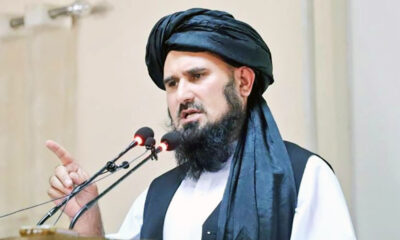
 Latest News2 days ago
Latest News2 days agoAfghanistan’s Chief of Armed Forces underscores readiness and equipment for national defense
-
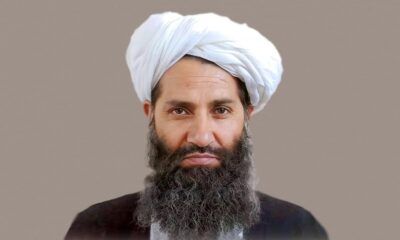
 Latest News3 days ago
Latest News3 days agoGrateful to Afghans and Ulama for obeying the Islamic Emirate, says Hibatullah Akhundzada
-

 Latest News1 day ago
Latest News1 day agoAfghanistan welcomes investment and technology partnerships with India
-
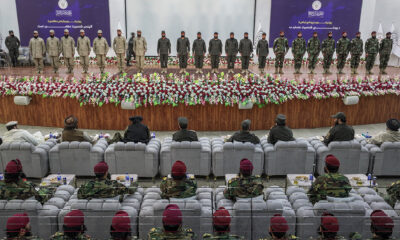
 Latest News4 days ago
Latest News4 days agoAfghanistan’s defense ministry unveils new military uniforms for armed forces
-

 Business4 days ago
Business4 days agoWith Torkham closed, trade losses mount
-

 Sport4 days ago
Sport4 days agoAfghanistan stay alive in T20 World Cup with crucial win over UAE
-

 Sport2 days ago
Sport2 days agoAfghan Peaks founder climbs Aconcagua to promote Afghanistan’s mountain potential










